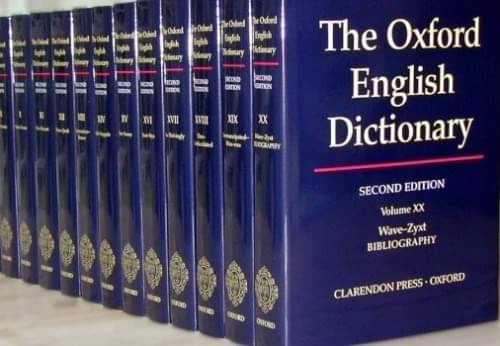
The Oxford English Dictionary has amended the word woman’s definition and updated the sexist and offensive synonyms used for a woman. After facing much criticism, Oxford University Press has changed the meaning of the word woman.
The change was made following an extensive review initiated by petitions filed last year, criticizing the inclusion of words like “bitch, bint, wrench,” and other offensive terms as synonyms for a woman.
The updated definition in the Oxford Dictionary now acknowledges that a woman can be a person’s wife, girlfriend, or a female lover, rather than being all these things only to a man. The changes have also been made to a man’s definition, and now it includes similar gender-neutral terminology.
Other terms that have been revised under the changes are related to sexual attractiveness and activity. Several labels have also been assigned terms categorized as derogatory, offensive, or dated. The word ‘bitch and bint” are also no longer listed as synonyms for the word “woman.”
According to an Oxford University Press spokeswoman, the changes were implemented after an” extensive review of entries related to women and many other related terms.”
The year 2020 has been all about extraordinary challenges and changes; hence, it was only suitable for the Oxford University Press to make the much-needed amendments to the word “woman” in the dictionary that was not instead of the outdated derogatory and offensive terminology.
Following the several petitions filed last year, which had criticized the inclusion of sexist labels like “bitch, bint, wench,” and other harsh terms as synonyms for a woman in the Oxford Dictionary, the English language book definitions have now updated it with a more gender-neutral term.
As per The Guardian, the petition had called for all phrases and definitions that “discriminate and “patronize or “connote men’s ownership” of women to be eliminated; hence, the updated definitions acknowledge that a woman can be “a person’s wife, girlfriend, or female lover”, rather than only a man’s.
Reportedly, the petitions started by Maria Beatrice Giovanardi also demanded enlarged entry of “woman” with examples including the representative of minorities such as transgender women and lesbian.
This year on International Women’s Day, the Oxford University Press was called out by leaders of Women’s Aid and the Women’s Equality Party.
An open letter signed by them demanded to change the “sexist” definitions. It read, “Bitch is not a synonym for woman. It is dehumanizing to call a woman a bitch. It is but one sad, albeit extremely damaging, an example of everyday sexism.
Furthermore, that should be explained clearly in the dictionary entry used to describe us.”
An “extensive review” was triggered as per an Oxford University Press spokeswoman, and changes were brought in “for ‘woman’ and many other related terms”.
She told the news agency, “This independent editorial approach means that our dictionaries provide an accurate representation of language, even where it means recording senses and example uses of words that are offensive or derogatory, and which we would not necessarily employ ourselves.”
However, the word ‘bitch’ continued to be listed as a synonym despite being labeled as “offensive” and is defined as a “spiteful, unpleasant, or disliked woman” as contrasted to the word dickhead who is not included in the list of synonyms for men, is considered “vulgar slang” and is defined “like a stupid, irritating, or ridiculous man.”
According to The Guardian, the campaigners requesting the changes had argued that examples the dictionary offered for a man were much more exhaustive than those for a woman. They said that the dictionary presented women as a subordinate or an irritation.
The petition also demanded that all the terms that stressed men’s ownership over women or discriminated against and patronized them should be eliminated.
Additionally, a woman’s definition was to be enlarged to include examples representative of minorities such as transgender women and lesbian.












